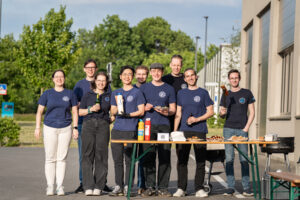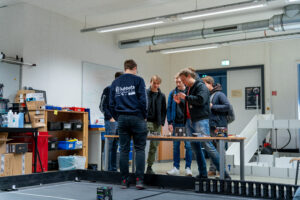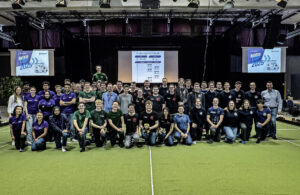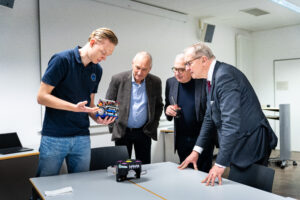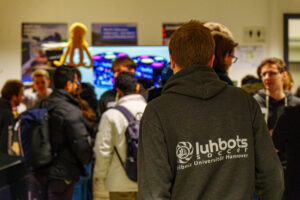📅 24th of November 2023
📍 Favorite Parkhotel, Mainz
Let’s talk: AI!
Having already dealt with this topic at our “Robotics Goes AI – The Future of Robotics in Hannover” event in spring this year, we were now able to delve even deeper into the subject with the Federal Ministry for Digital and Transport Affairs (Bundesministerium für Digitales und Verkehr, BMDV). On 24 November in Mainz, the focus was specifically on “Fueling European Innovation with AI” – important keywords: robotics, competitiveness, trustworthiness and of course Artifical Intelligence as the new mission. Our team leader Leon Koch took to the stage with representatives from business, science and civil society to discuss and jointly develop solutions to exciting issues.
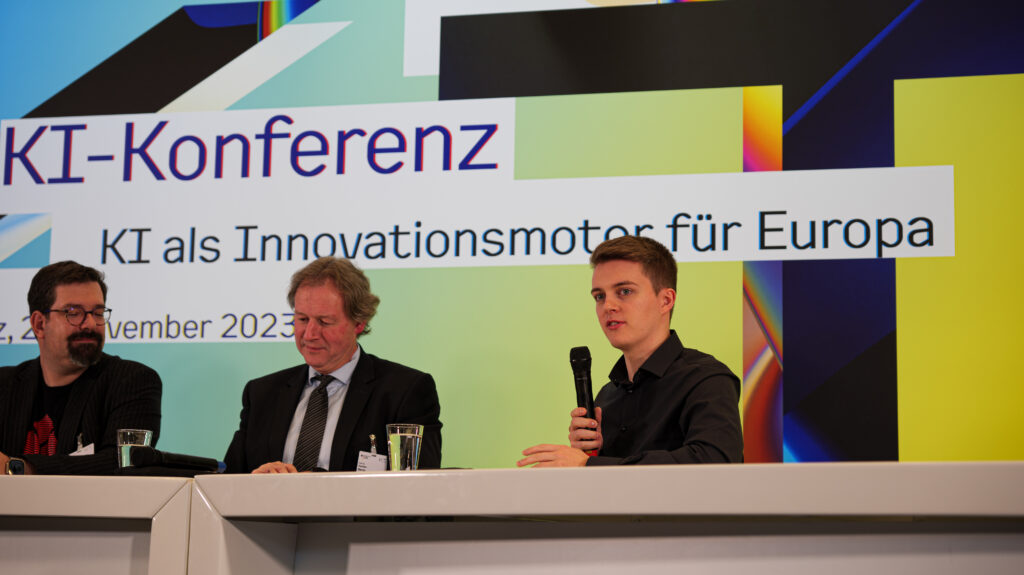
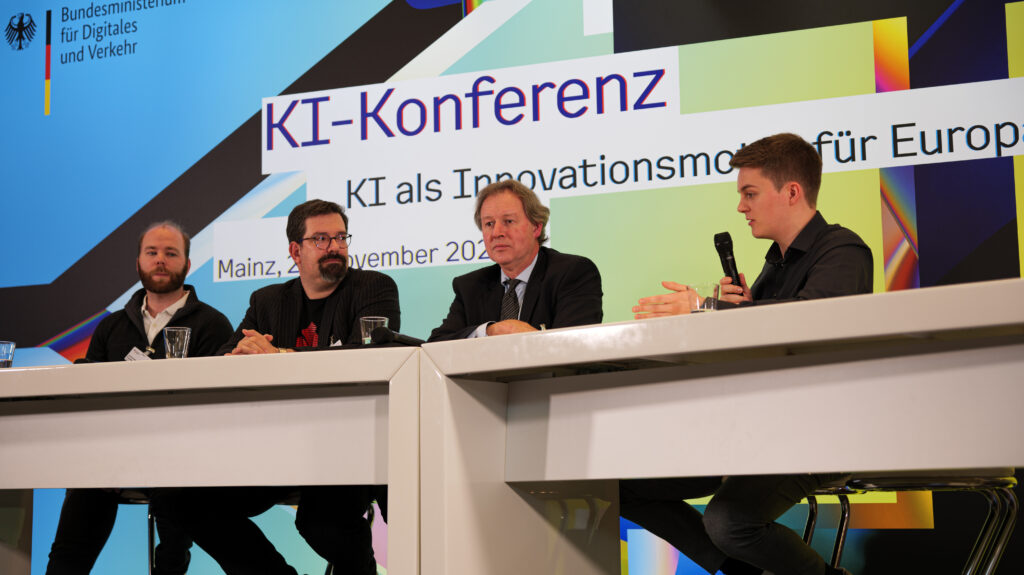
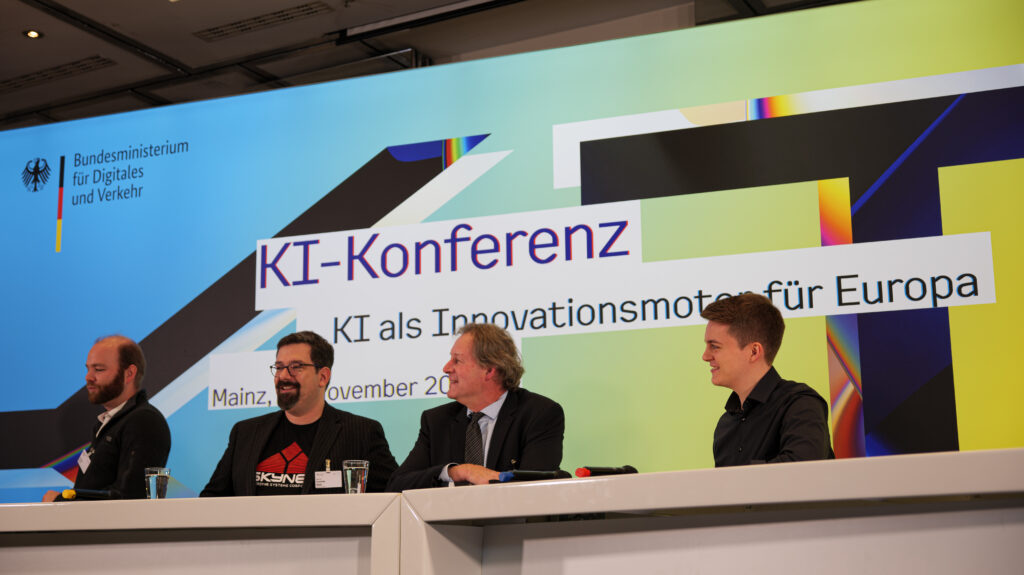
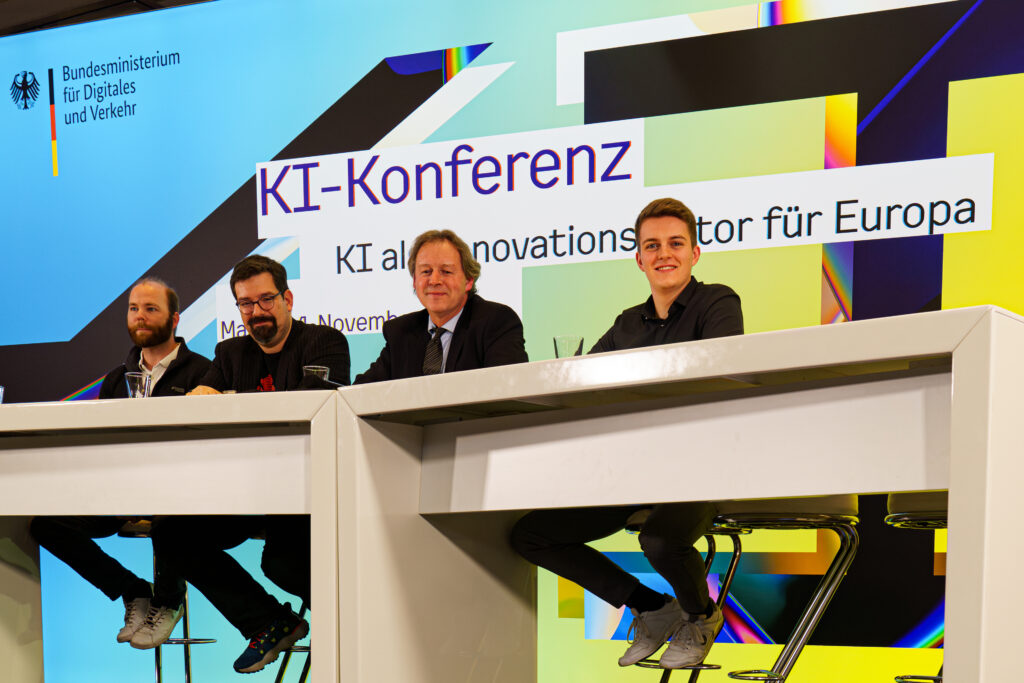
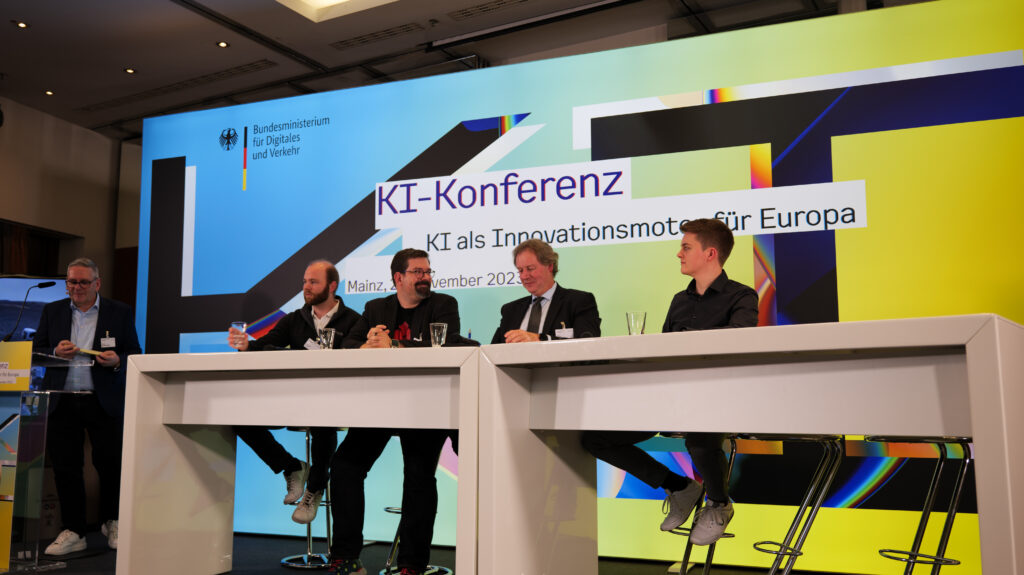
“Germany will remain a world leader in intelligent robotics if…”
Leon’s working group started the discussion by completing this sentence. Leon’s statement on the topic: We need to take away people’s fear of robotics, promote our young talent accordingly and make the technologies more suitable for everyday use.
The former and the latter go hand in hand: if you already come into contact with the technologies in your everyday life, you are less afraid of them and your interest is aroused to take a closer look at the theory behind them.
In particular, the point of promoting young talent was taken up again by Leon during the discussion and elaborated on further. It is important to start teaching these topics at a young age and to familiarise pupils with them, for example in the form of working groups or excursions at schools. Student initiatives such as luhbots also deepen the theoretical knowledge acquired during their studies and put it into practice. Leon notes: Robotics is a combination of different disciplines: From mechanical engineering to electrical engineering and computer science – knowledge of all these disciplines is necessary for a comprehensive understanding of robotics. The exchange between these areas must be specifically promoted, which is possible through interdisciplinary projects such as luhbots.
On YouTube you can still watch the stream from the main hall as well as the stream from Leon’s working group!
On stage with Leon were:
● Prof. Dr Alin Albu-Schaeffer, Director of the Institute of Robotics and Mechatronics at the German Aerospace Center (DLR)
● Jonas Andrulis, CEO of Aleph Alpha GmbH
● Prof. Dr Karsten Berns, Chair of Robotic Systems, Department of Computer Science at the Technical University of Kaiserslautern
● Prof. Dr Bertrand Braunschweig, Scientific Coordinator at Confiance.ai
● Prof. Dr Prof. h.c. Andreas Dengel, Managing Director of the German Research Centre for Artificial Intelligence Kaiserslautern
● Johannes Fuchs, Head of New Business at Robotise
● Milan Gandhi, Fellow at the Institute for Strategic Dialogue
● Dr Dr Frauke Goll, Managing Director at the appliedAI Institute for Europe gGmbH
Dr Quirin Görz, CIO of KUKA AG
● Dr Sebastian Hallensleben, Head of Digitalisation and AI at the Association for Electrical, Electronic & Information Technologies (VDE)
Marc Hauer, Senior Solutions Architect at the TÜV AI Lab
● Dr Andreas Heindl, Project Manager Mobility Data Space at acatech – National Academy of Science and Engineering
Dr Peyman Khodabakhsh, Senior Manager Strategic Projects at acatech – National Academy of Science and Engineering
● Prof. Dr Paul Lukowicz, Scientific Director & Head of the Embedded AI Research Department at the German Research Center for Artificial Intelligence (DFKI)
● Philipp Mahlow, PhD student at the University of Innsbruck (Zukunftsrecht)
● Philipp Mahlow, PhD student at the University of Innsbruck (Zukunftsrecht)
● Prof. Dr Matthias Niessner, Professor of Visual Computing at the Technical University of Munich School of Computation, Information and Technology
Dr Christiane Plociennik, Advisor at the German Research Center for Artificial Intelligence (DFKI)
● Prof. Dr Anne Schwerk, Head of BCRT Science Management at the Berlin Institute of Health Center for Regenerative Therapies (BCRT) Berlin Institute of Health at Charité – Universitätsmedizin Berlin
● Prof. Dr Philipp Slusallek, Scientific Director & Member of the Executive Board at the German Research Center for Artificial Intelligence (DFKI)
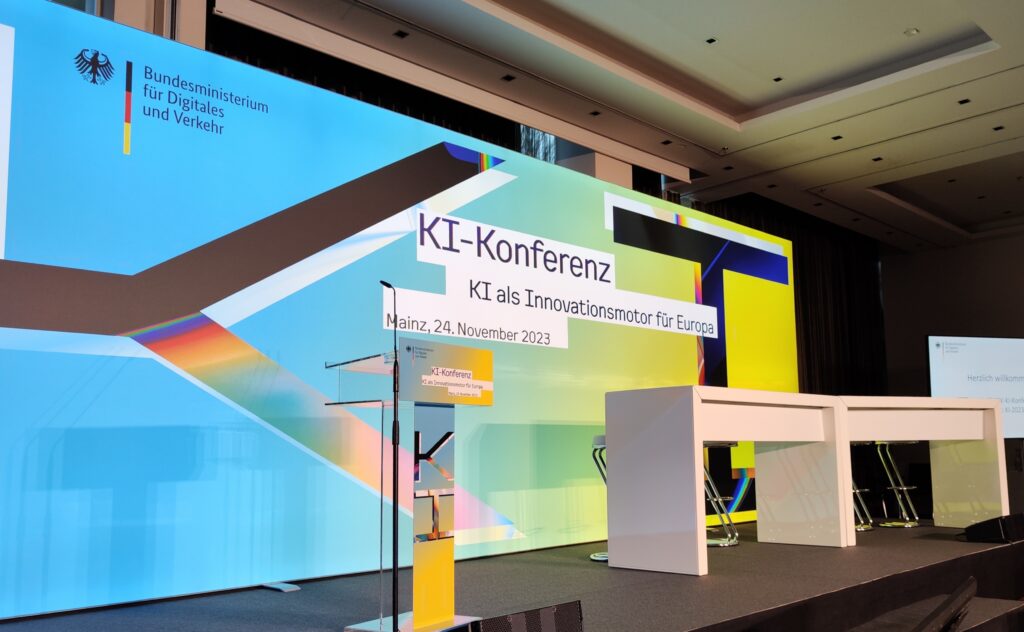
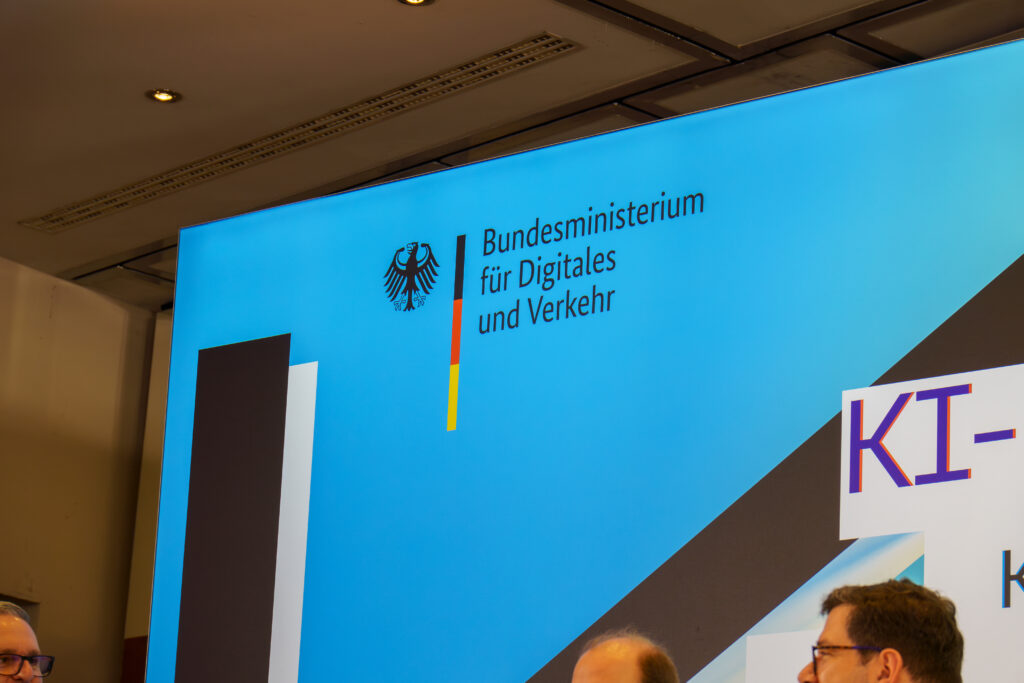
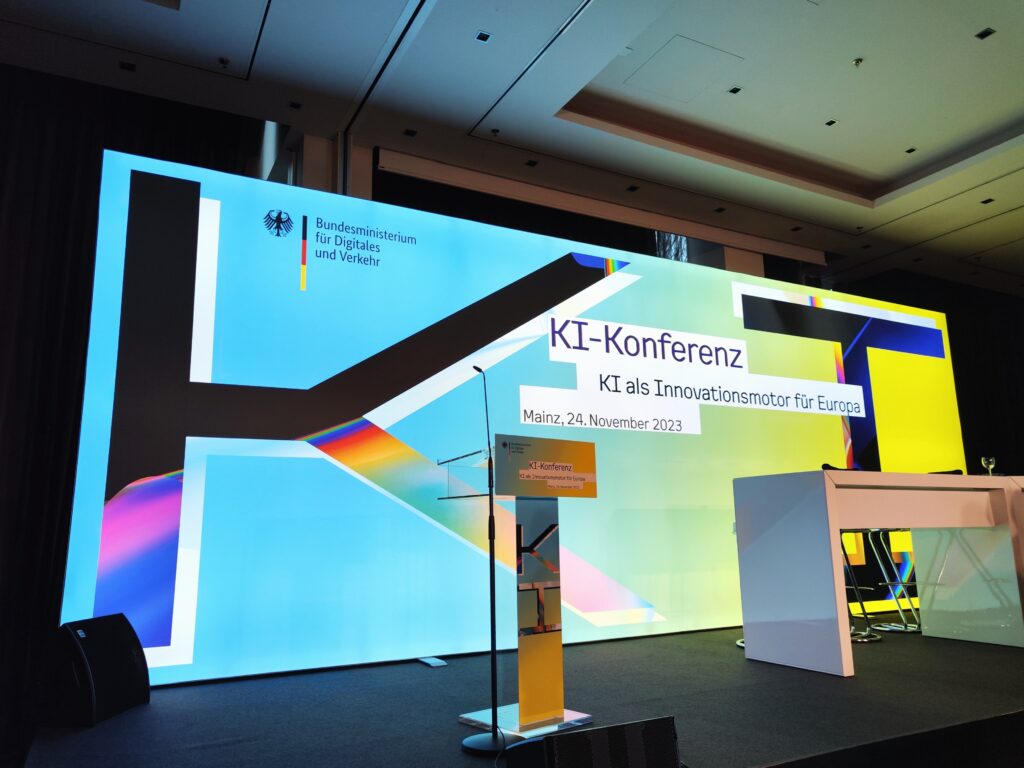
Once again, thank you very much for the invitation and the opportunity to represent our positions on stage and to also take away many exciting ideas as an audience member.

